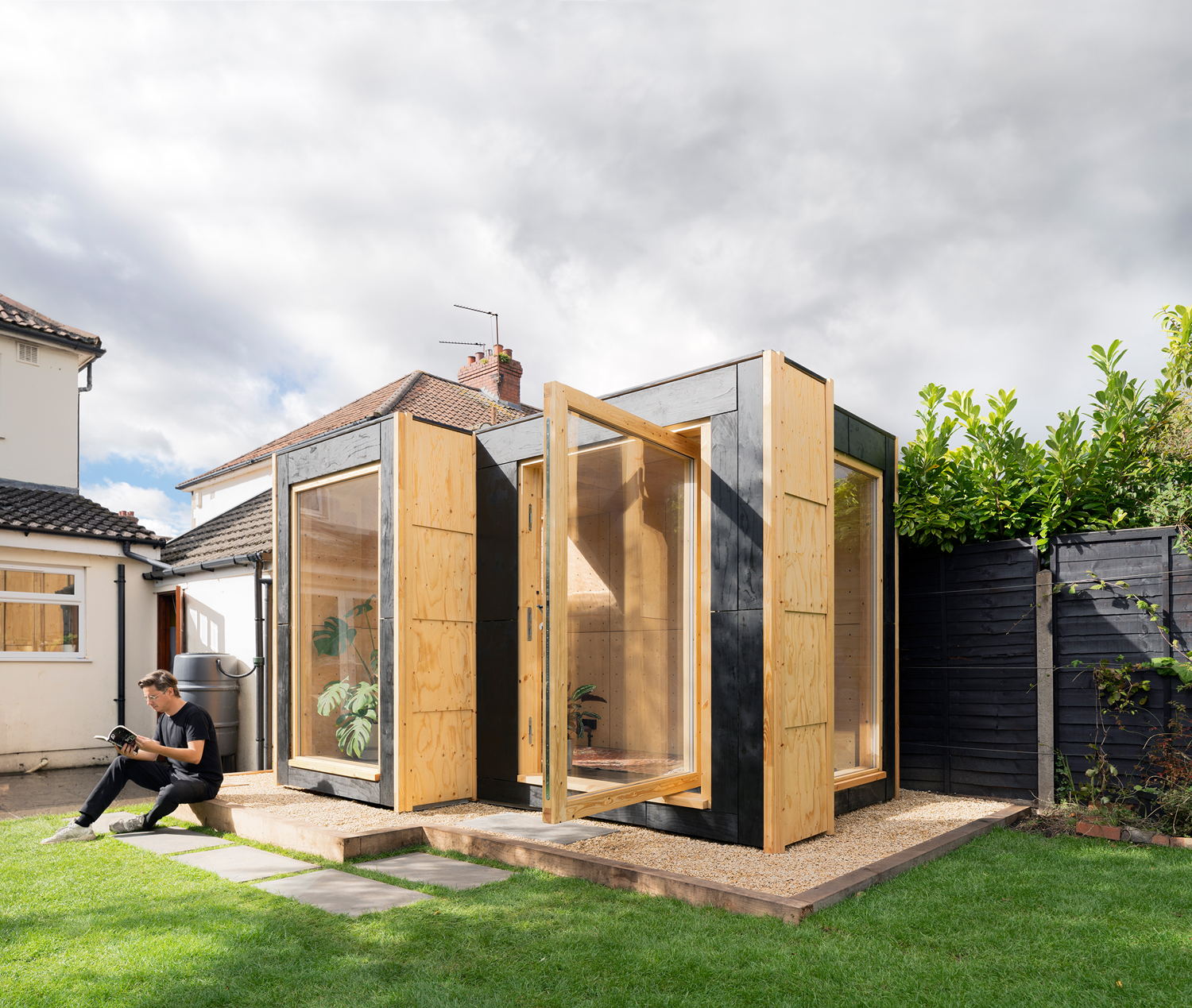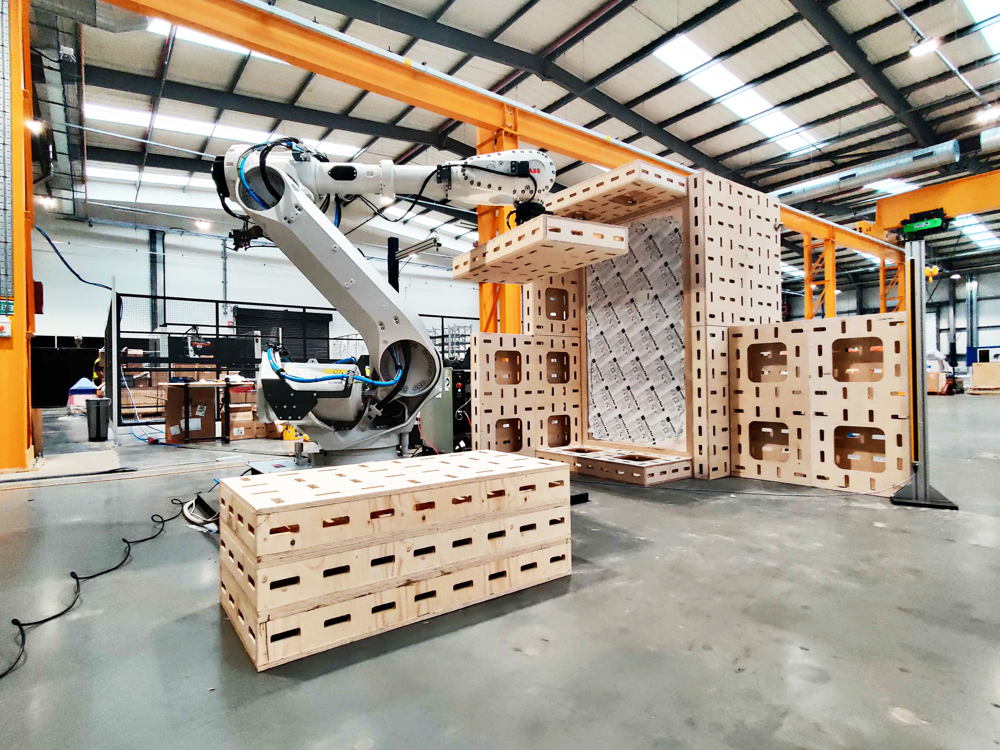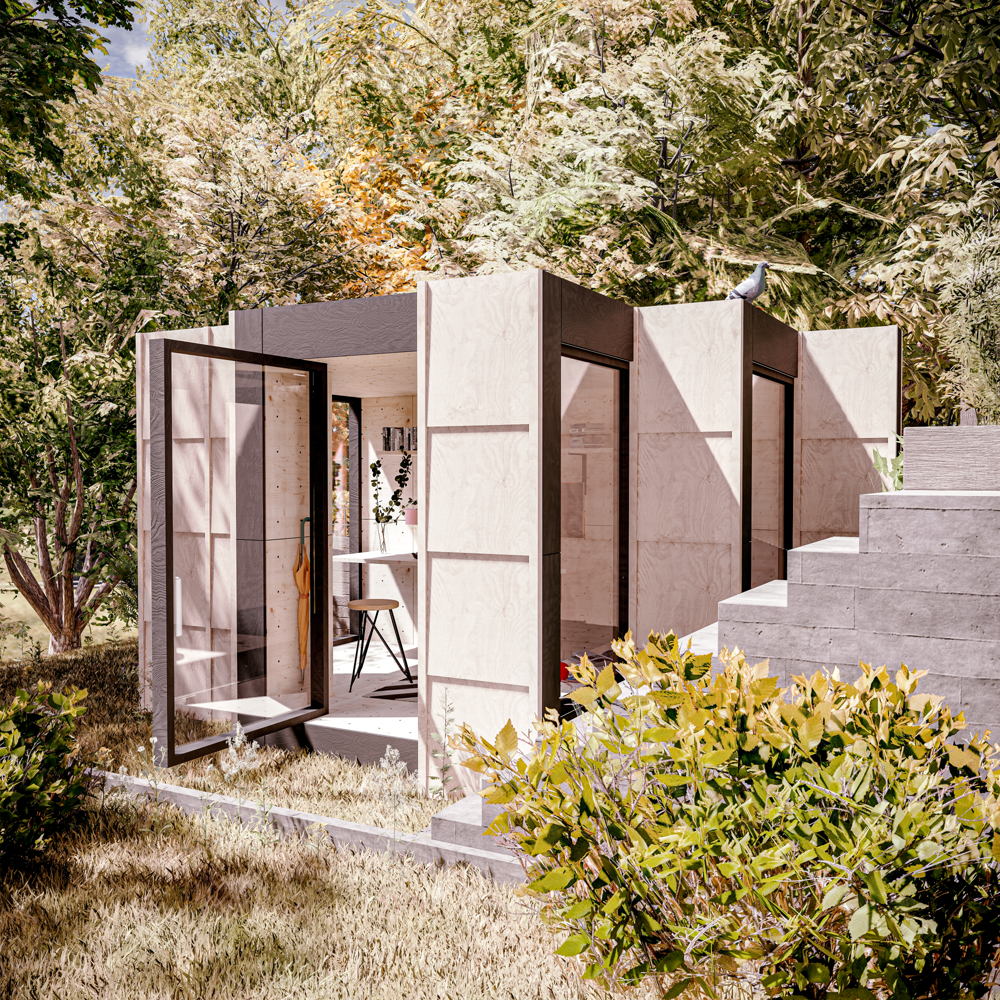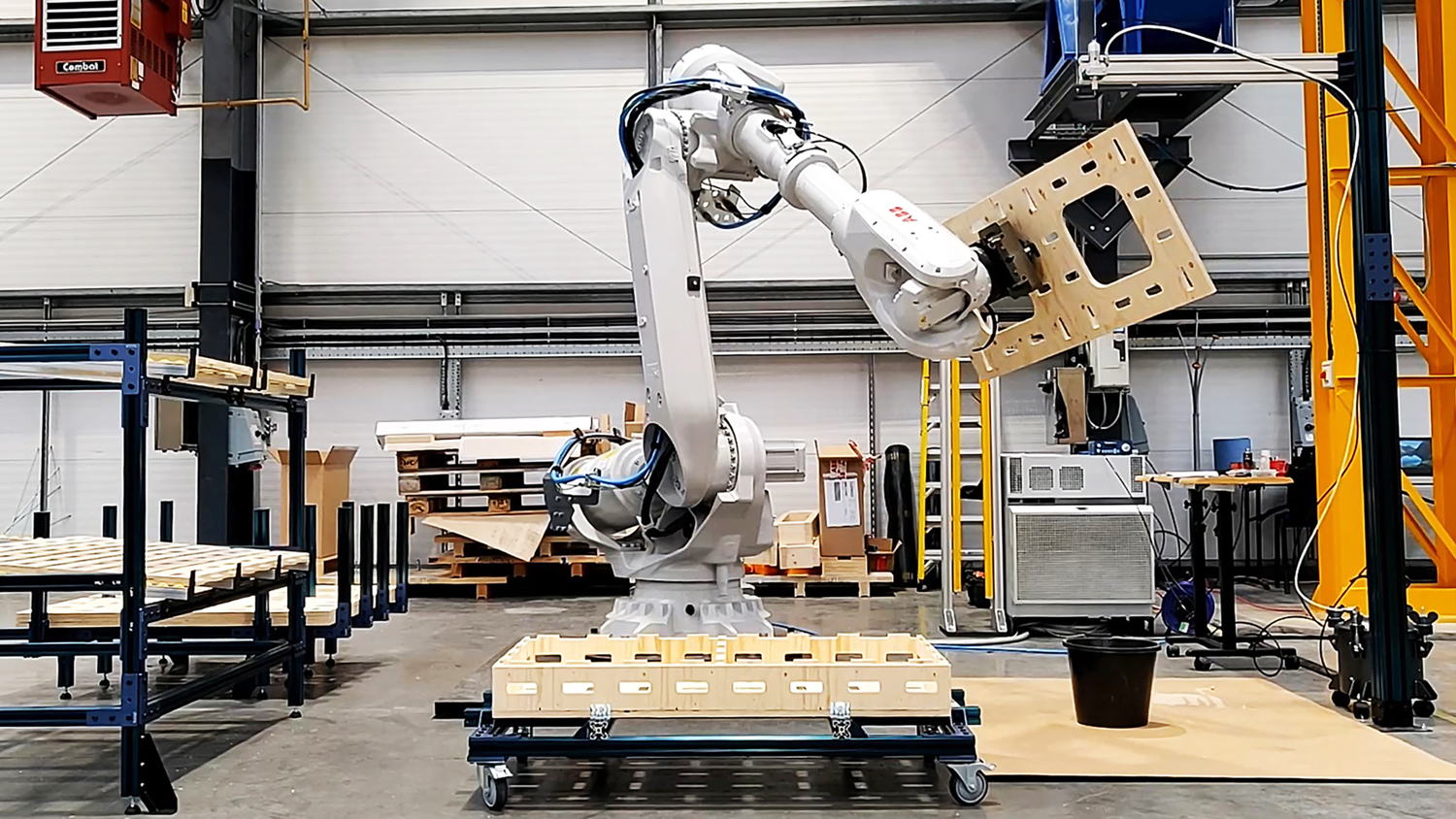AUAR Selected by UK Government to Showcase Robotically Assembled Dwelling Unit at 2021 Global Investment Summit
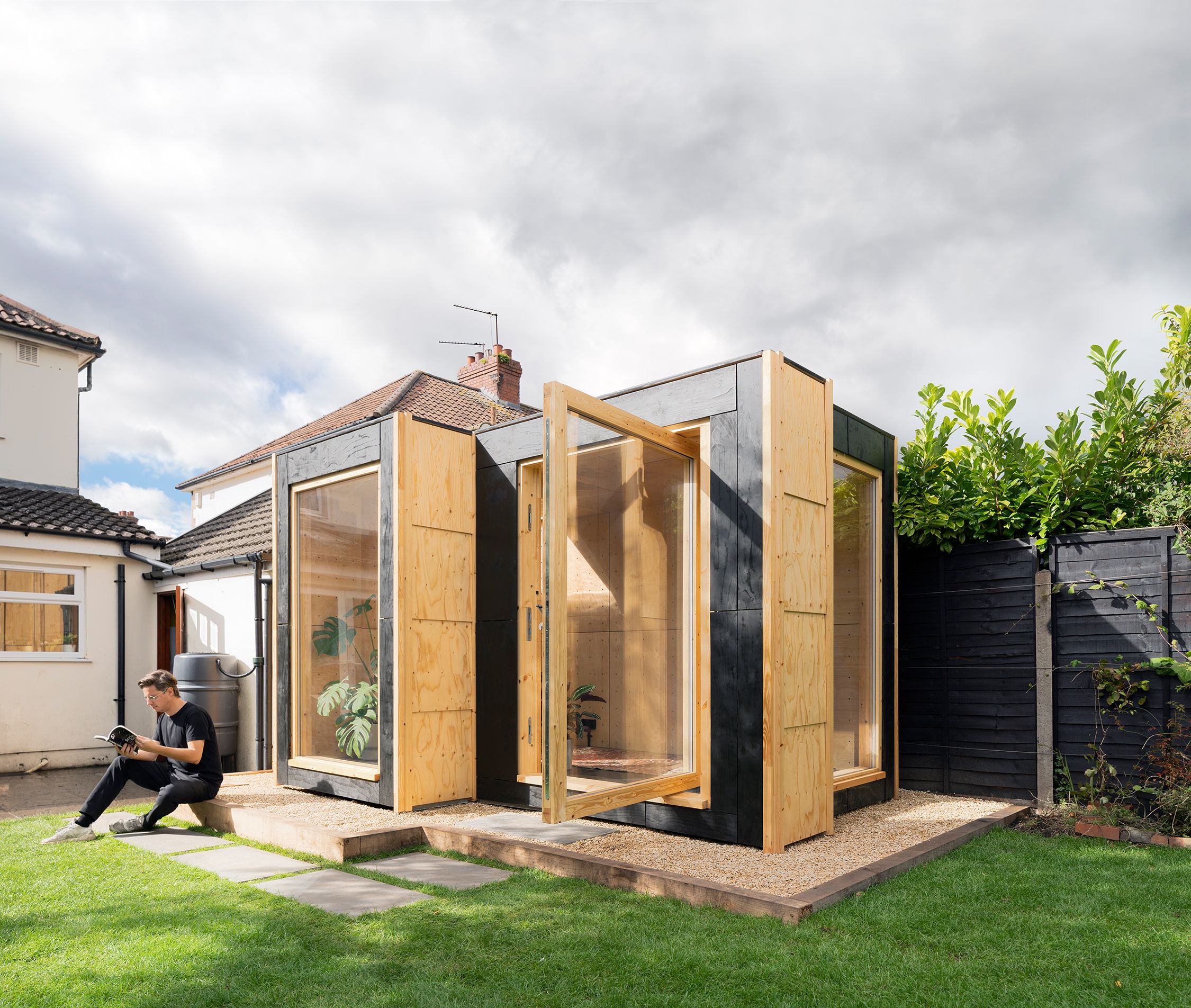
London, England—Bristol and London-based design and technology company Automated Architecture Ltd (AUAR) is one of 12 businesses—and the only design firm—selected by the UK Government to showcase their work in this year’s Global Investment Summit (GIS) on October 19, 2021. The Summit showcases 12 of the UK’s best “green innovators'' to encourage international investment in green technology ahead of COP26 (UN Climate Change Conference UK), which begins in Glasgow the following week. AUAR will present the company’s modular timber building system, which uses robotics and automation to provide high-quality, beautifully designed, and sustainable affordable housing. Specifically, with the support of ABB Robotics, the presentation showcases the robotic assembly of one of AUAR’s dwelling units in real time.
“The demand for new homes is astronomical—two billion are needed in the next 80 years—yet the way we build them has not changed in hundreds of years. Traditional attempts to modernise housing construction results in extreme centralisation and huge capital expenditure, further widening the divide between housing developers and local communities,” says AUAR Co-Founder and CEO Mollie Claypool. “Our approach offers a community-driven, climate-conscious alternative—a way to revolutionize the way we design and build homes and empower people and communities to live better and more sustainable lives.”
Founded in 2019, AUAR (pronounced “our”) works at the intersection of design, technology, and community to provide a modular timber building system that uses robotics and automation to revolutionise house building. At its core, the system consists of building blocks made from timber, a renewable material, which are robotically pre-fabricated and assembled into dwelling units. The production chain begins when a robot assembles timber sheets into individual building blocks, then stacks the blocks into easily transportable units. These units are delivered locally to a given site and assembled by local craftspeople and builders into homes.
Using AUAR’s automation, the units can be easily customized based on site characteristics and a given inhabitant’s lifestyle and visual preferences. This provides a radical alternative to existing modular housing approaches which are repetitive and difficult to adapt to local contexts. Uniquely, the timber building blocks can be disassembled and reassembled for other uses, therefore creating less material waste and aligning with principles of circular design.
This approach decentralizes and localizes the design and construction process, allowing AUAR to build closer to the local communities they work with instead of importing materials or modular homes from far afield. This simultaneously reduces carbon footprint and increases community involvement. With job creation in mind, the robot used to assemble AUAR’s timber blocks can be easily embedded into small communities within existing workshops and maker spaces. Following block assembly by robots, existing local craftspeople, builders, and contractors are integrated into AUAR’s production chain, providing cladding, custom finishes, windows, and site preparation. Importantly, this process provides an alternative to large factories and globalized production chains that limit local capacity for job creation, have hazardous carbon footprints, offer minimal consultation with local communities on how to meet needs for homes, and create dreary and monotonous housing.
AUAR’s first two permanent dwelling units on backyard sites located in two neighbourhoods Bristol, UK are due to be completed by November 2021. The units are spatially different and were produced locally, serving as demonstrators for AUAR’s distributed approach.
“Designed for small and difficult-to-develop sites, AUAR’s housing solutions are produced within and for local communities. Our approach to automation creates opportunities for local contractors, trades, and members of the community to enhance their skill sets—providing a wider range of entry-points to actively participate in housing production, whilst defining new jobs and generating social capital,” says AUAR Co-Founder and CCO Claire McAndrew.
“With the increased impact of the climate crisis, our dwelling units might be more needed than ever to offer high quality, temporary accommodation for people displaced by natural disasters. Having a stock of building blocks and robots around could build resilience in our urban fabric to rapidly respond to unexpected scenarios," says Gilles Retsin, AUAR Co-Founder and CTO.
UK Minister for Investment Gerry Grimstone says of AUAR’s modular building system:
"Our showcase businesses show why the UK is a global hub for green technology, and I am proud that Automated Architecture will be presenting their innovative robot-assembled automated sustainable construction systems for housing to some of the world's most high profile investors at the summit. Our industries of the future like architecture will not only help ensure a cleaner, greener planet but also create high value jobs in Bristol, London and across the UK."
Access Dropbox Press Kit
About GIS:
The Global Investment Summit, taking place on Tuesday 19 October in London, will provide a platform to showcase the UK’s leading global position and commitment to Net Zero, and the investment opportunities that this provides across the whole of the United Kingdom as we look to build back better following the C-19 crisis. This is a significant moment in time for the United Kingdom as an independent trading nation and as we look to post C-19 crisis recovery. Working towards delivery of the Prime Minister’s Ten Point Plan for a Green Industrial Revolution, the Summit will bring together 200 of the world’s most prominent decision makers, C-Suite executives, and investors to the UK.
The Summit programme and sessions will showcase the most innovative green technologies and companies already operating in the UK and set out how HMG intends to strengthen the UK’s already competitive business environment. We will feature physical examples of the very best of the United Kingdom’s green and sustainable technology, innovation, and world-leading services in a green innovation showcase at the event. There will also be digital links with other events and showcases which will be held and installed around the UK (including in the Devolved Nations of the United Kingdom). The Summit aligns to the Department for International Trade and wider HMG priorities seeking to attract new, and retain existing inward investment delivering economic growth to all the nations and regions of the UK, reinforcing our commitment to levelling up and strengthening the union.
About ABB:
ABB Robotics is AUAR’s automation partner for GIS. ABB Robotics is a pioneer in robotics, machine automation and digital services, providing innovative solutions for a diverse range of industries, from automotive to electronics to logistics. As one of the world’s leading robotics and machine automation suppliers, ABB Robotics employs more than 11,000 people in 53 countries and has shipped more than 500,000 robot solutions.
